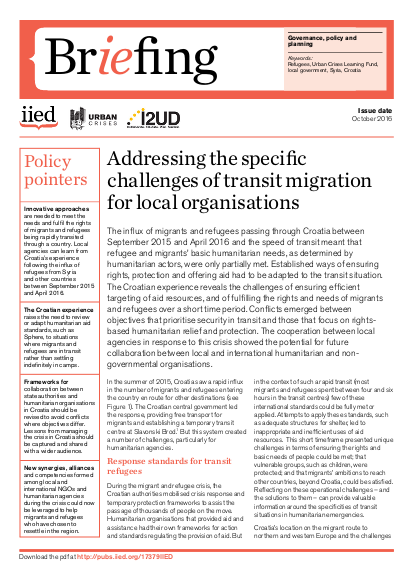
The influx of migrants and refugees passing through Croatia between September 2015 and April 2016 and the speed of transit meant that refugee and migrants’ basic humanitarian needs, as determined by humanitarian actors, were only partially met. Established ways of ensuring rights, protection and offering aid had to be adapted to the transit situation. The Croatian experience reveals the challenges of ensuring efficient targeting of aid resources, and of fulfilling the rights and needs of migrants and refugees over a short time period. Conflicts emerged between objectives that prioritise security in transit and those that focus on rightsbased humanitarian relief and protection. The cooperation between local agencies in response to this crisis showed the potential for future collaboration between local and international humanitarian and nongovernmental organisations.
Links
Resource collections
- UN Habitat - Urban Response Collection
- Urban Response - Urban Crisis Preparedness and Risk Reduction
- Urban Response Collection - Community Engagement and Social Cohesion
- Urban Response Collection - Economic Recovery
- Urban Response Collection - Environment and Climate Change
- Urban Response Collection - Housing, Land and Property
- Urban Response Collection - Urban Crisis Response, Recovery and Reconstruction
- Urban Response Collection - Urban Resilience